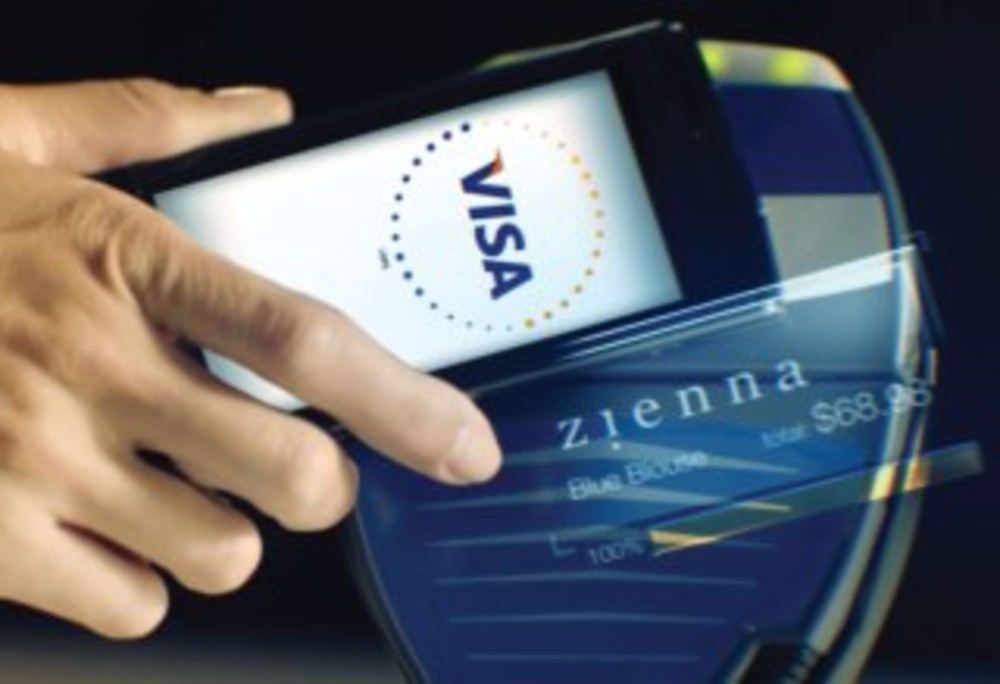Retailers have sped up implementation of mobile payments in an effort to simplify and drive in-store, online and mobile transactions. In May, brands including Bloomingdale’s, Macy’s, Toys “R” Us and Gap Inc. entered partnerships with Visa and Google to execute secure ?e-commerce, mobile commerce and social networking commerce payments. Earlier in the year, Starbucks began accepting mobile payments at 6,800 US locations. Fast food competitor McDonald’s has also explored mobile payments and, according to multiple media reports, will roll these out in the UK later this year.?
“We’ve been working on electronic payments for more than four decades,” says Elvira Swanson, senior business leader at Visa. “Today, on e-commerce, you have to provide a lot of key entries — your card number and expiration date. It takes quite a few steps. If you look at that experience on mobile, it’s even more challenging. You have a much smaller keyboard, which becomes a barrier to commerce.”?
Visa’s digital wallet, which will be released this fall, aims to make online shopping easier by storing multiple credit card accounts in one place. While shopping online, customers will only need to enter an email address, login name and password, instead of a billing address, account number and expiration date.?
A recent Google-MasterCard partnership resulted in Google Wallet, which will allow consumers to pay for purchases via a mobile app anywhere they see the MasterCard PayPass terminal available.?
“We’re on the verge of a major shift in payments and therefore commerce,” Google’s VP of payments Osama Bedier said during a May 26 press conference announcing Google Wallet.?
“This is all about ease of use,” says Michael Becker, North America managing director of the Mobile Marketing Association. “Retailers are going to provide more convenient means of engagement as mobile becomes a part of their daily lifecycle. As I see a mobile coupon or scan a device in-store, the ability to enable that purchase right then provides a significant level of convenience.”?
Becker notes that mobile payments have been “developing for years” and will eventually become “mainstream.”?
Google signed 17 retail partners, such as Bloomingdale’s, Macy’s and Toys “R” Us for Google Wallet, while Visa reported 14 financial services partners, including Nordstrom and TD Bank. Gap Inc. partnered with Visa on Gap Mobile4U, which allows the retailer to send deals directly to consumers’ smartphones based on their location.?
“Partnering with a payments leader like Visa enables us to bring innovative shopping experiences to our customers,” says Amy Carr, director of CRM strategy at Gap. “We know our customers love to discover the latest fashion trends and deals and Gap Mobile4U enables them to do just that.”?
In addition to its Google partnership, MasterCard is conducting “more than 20 [active] mobile payments pilots in the market around the globe,” says Joanne Trout, VP of worldwide communications at the credit card services company.?
She says MasterCard is “going with the trends of mobility” because consumers are increasingly using their phones as they would their personal computers “for everything from GPS to search.” “Mobile payments are the next evolution of people paying for things,” Trout adds. “We want to be part of that.”?
While Nordstrom partnered with Visa on the digital wallet initiative, it also began to “pilot a few different abilities to better respond to customers who increasingly want to use their mobile device,” says Colin Johnson, Nordstrom business PR director.?
Nordstrom currently enables free in-store Wi-Fi and e-receipts. Salespeople in the personal shopper section of the store carry handheld devices that allow consumers to search the retailer’s entire inventory in real-time. ?
“We are working to become a better multichannel provider of products and services, and we need to provide a seamless shopping experience,” explains Johnson. ?
Tom Mellish, SVP of US credit cards at TD Bank, says the bank was intrigued by the potential convenience factor for customers in the Visa program. Yet, he says TD Bank is actively market testing to ensure its mobile payments initiative doesn’t “get too far out in front of our customers.” “We need to make sure this is really valued by our customers,” he says. “We believe it will be, but sometimes the market tells you different things.”








